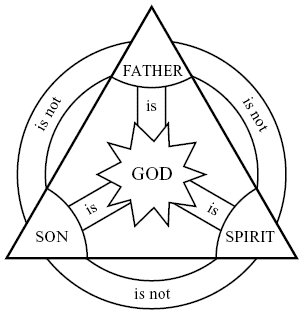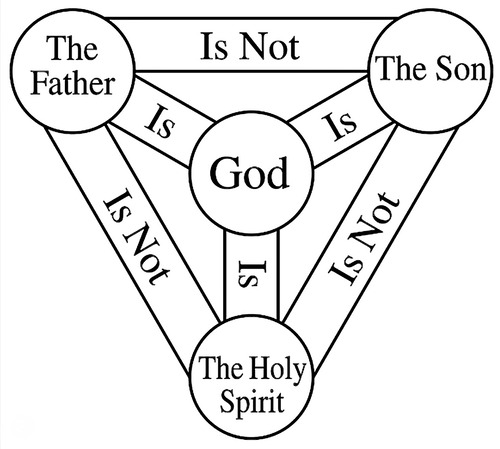Evil: More Than the Absence of Good
The notion “evil is merely the absence of good” has gained traction in some Christian circles. The concept may seem appealing at first, especially as an attempt to absolve God of responsibility for the evil we see around us. However, on closer examination, we begin to see it creates fresh problems for us in making sense of our faith. What’s more, we see how Scripture warns us we’re to be on guard against evil—24/7. In other words, the Bible presents evil as an active force. Join us, as we explore why the Bible presents evil as more than just a void where good is in short supply, and why this matters for our theology and spiritual life…
The “Evil as Absence” Theory: Well-Meaning but Problematic
Well-meaning folk often advocate the theory that evil is simply the absence of good. Their intention is noble: they seek to distance God from the existence of evil. By framing evil as a mere ‘absence’, rather than a menacing ‘presence’ they hope to present a God who is entirely separate from evil’s origin and existence.
However, this perspective, while well-intentioned, creates significant theological problems:
- Limited Sovereignty: If evil exists as an absence that God didn’t create and can’t control, it implies God’s sovereignty is limited. This contradicts the Bible’s teaching that God maintains supreme rule over all creation (Psalm 103:19, Daniel 4:35).
- Compromised Omniscience: If evil is just a void that arose without God’s knowledge or intent, it challenges the concept of God’s omniscience. Scripture affirms us God knows all things (1 John 3:20, Psalm 147:5).
- Questionable Omnipotence: The idea that evil exists as an independent force outside of God’s creative act implies a limit to God’s power, contradicting the Bible’s affirmations on God’s omnipotence (Jeremiah 32:17, Matthew 19:26).
- Problem of Divine Judgment: If evil were merely the absence of good, God’s judgment of evil makes no sense. Why would God judge something that has no real existence?
The Biblical View: Evil as an Active Force
Scripture consistently portrays evil not as a passive ‘absence’, but as an active, opposing force to good:
The Origin of Evil: The Bible doesn’t depict evil as a void or absence, but as a corruption of what was once good. The Biblical view of evil is as an active force, as seen in:
- Satan’s Rebellion: Ezekiel 28:15-17 describes Satan’s fall from being a blameless created being to one filled with wickedness.
- The Fall of Humanity: Genesis 3 portrays the first human sin not as a mere turning away from good, but as an active choice to disobey God.
Spiritual Warfare: The New Testament frequently describes evil as an active, opposing force. The imagery of struggle and conflict, for instance, in Ephesians 6:12, suggests evil is more than just an absence; it’s an adversarial power.
- Evil—Something We’re to be on Guard Against, 24/7: Scripture portrays evil not as an abstract concept, but as an active, ever-present danger. In 1 Peter 5:8, we read: “Be alert and of sober mind. Your enemy the devil prowls around like a roaring lion looking for someone to devour.”
This verse isn’t merely personifying evil; it’s describing the relentless, predatory activity of Satan. The imagery of a prowling lion emphasizes the constant threat evil poses, requiring believers to be perpetually on guard. This active, aggressive depiction of evil goes far beyond the concept of a mere absence of good. It presents evil as a real, dynamic force that actively seeks to destroy, necessitating our constant vigil and resistance. This biblical perspective underscores why we’re called to “resist the devil” (James 4:7) and to “put on the full armour of God” (Ephesians 6:11)—actions that would be wholly unnecessary if evil were simply an absence of good.
Why Then, does a Loving God Permit Evil? (Do read our related post, Why Does a Loving God Allow Evil to Exist?) The Bible offers a more coherent explanation than the “evil as absence” theory: God isn’t evil, but He allows evil for purposes that align with His ultimate good plans. This view preserves God’s sovereignty, omniscience, and omnipotence while also maintaining His perfect goodness.
Isaiah 45:7 states, “I form the light and create darkness, I bring prosperity and create disaster; I, the Lord, do all these things.” This verse doesn’t mean God creates evil, but rather that He creates a world in which both good and evil can exist, and He remains sovereign over both.
God’s Response to Evil: The Bible’s portrayal of God’s response to evil further undermines the “evil as absence” theory:
- Divine Judgment: Scripture consistently portrays God as actively judging and condemning evil. Romans 1:18, for instance, suggests evil is something substantive that warrants judgement—and not just a void to be filled with good.
- The Cross of Christ: The central event of Christian theology—Christ’s death on the cross—also speaks to the nature of evil. If evil were merely an absence, why would such a drastic measure be necessary? The fact that God sent His Son to die in order to overcome evil indicates its serious and active nature.
Conclusion
While the notion “evil is just the absence of good” may seem to offer an easy solution to the problem of evil, it ultimately creates more theological problems than it solves. The biblical portrayal of evil as an active force that God allows but opposes provides a more coherent understanding.
This view maintains God’s sovereignty, omniscience, and omnipotence while also preserving His perfect goodness. It acknowledges the reality and seriousness of evil without making God its author. It explains why God actively judges evil and why such drastic measures as Christ’s sacrifice were necessary to overcome it.
As we grapple with the reality of evil in our world, let’s embrace the full biblical picture. God is not the author of evil, but He is sovereign over it. He allows it for now, actively opposes it, and will one day eliminate it entirely. This understanding calls us to actively resist evil, rely on God’s power in spiritual warfare, and look forward to the day when God’s goodness will fully triumph over every evil.
Related Reads:
Editor's Pick

If Jesus is Messiah, Why Aren’t ALL Messianic Prophecies Fulfilled?
If Jesus is truly the Messiah, why hasn't world peace arrived? Why do Jews still face persecution? Why isn't the [...]

When Courage Fails: Will I Be Forgiven If I Deny Christ in Persecution?
The rooster crowed, and Peter remembered. In that devastating moment, the apostle realised he’d just done the unthinkable—three times he’d [...]

What Makes a Godly Dad? 5 Biblical Principles Fathers Need
Modern culture sends fathers mixed messages. Be strong but sensitive. Be involved but not overbearing. Lead but don’t dominate. With [...]

What Makes a Godly Mom? A Scripture-Backed Guide
In our culture’s confusion about gender roles and parenting, the timeless question remains: what makes a godly mother? While secular [...]

Paul’s Mandate for Men: Headship Or Servant Leadership? Or Both?
Modern Christianity has fallen into a trap. We've created an either/or battle between "headship" and "servant leadership," as if these [...]

Should We Stop Using Male Pronouns for God? Why Do We Say No?
A friend of ours arrived eagerly at his first theology class in seminary. But he quickly discovered something troubling: the [...]

Did Old Testament Law Force Women to Marry their Rapists?
**Editor’s Note: This post is part of our series, ‘Satan’s Lies: Common Deceptions in the Church Today’… Viral misinformation abounds [...]

From Danvers To Nashville: Two Statements, One Biblical Vision
30 years separate the Danvers Statement on Biblical Manhood and Womanhood (1987) and the Nashville Statement on Human Sexuality (2017). [...]

The Nashville Statement: Why Affirm It Despite Media Backlash?
WHY DO REFORMED CHRISTIANS STAND BY THIS STATEMENT ON MARRIAGE AND GENDER? When the Nashville Statement was released in 2017, [...]

Who Is Belial? Solving The 2 Corinthians 6:15 Mystery
Belial: This name from the pages of Scripture chills the soul. Who is this mysterious figure Paul invokes in 2 [...]
SUPPORT US:
Feel the Holy Spirit's gentle nudge to partner with us?
Donate Online:
Account Name: TRUTHS TO DIE FOR FOUNDATION
Account Number: 10243565459
Bank IFSC: IDFB0043391
Bank Name: IDFC FIRST BANK






